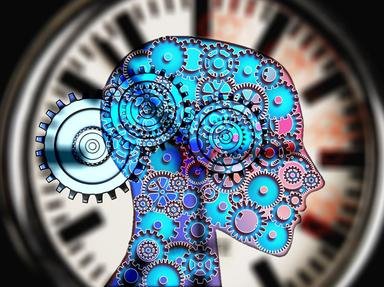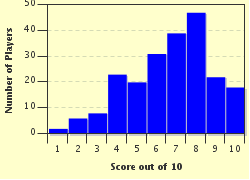Quiz Answer Key and Fun Facts
1. There are three main symptoms used in the diagnosis of Major Depressive Disorder/ Recurrent Depressive Disorder. Which of these would NOT be indicative of this condition?
2. Which of these Impulse Control Disorders involves the inability to stop stealing?
3. What is the preferred name for the condition once known as Multiple Personality Disorder?
4. "Eating Disorder Not Otherwise Specified" (EDNOS) is now the largest category of eating disorders. Which of these would NOT fit into this group?
5. Which of the following personality disorders are you MOST likely to find linked to criminal behaviour?
6. Under what type of classification of psychiatric disorders would you find Schizophrenia?
7. Which of these syndromes relates to a person who could be said to be addicted to medical tests and treatments?
8. Which of the following is NOT classified as an Anxiety Disorder?
9. This mood disorder was known as Manic Depression for many years. What is its current accepted name?
10. What group of people would you expect to be affected most by Puerperal Psychosis?
Source: Author
Midget40
This quiz was reviewed by FunTrivia editor
WesleyCrusher before going online.
Any errors found in FunTrivia content are routinely corrected through our feedback system.

